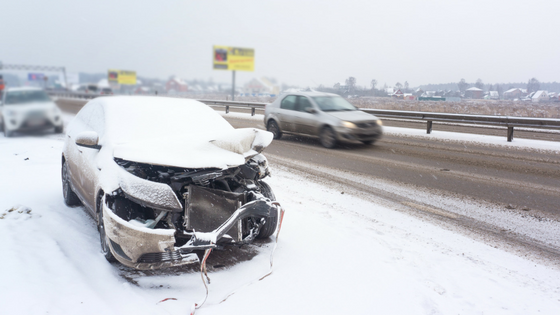Winter season means big coats, steamy drinks, and slick roads. Depending on where you live you can deal with roads that are wet, icy, snowy, slushy or some combination of them all. Winter accidents are common and dangerous. Today we’re talking about ways to improve your chances of avoiding winter accidents this season.
How To Avoid Accidents This Winter Season
- Keep Your Car in Tip-Top Shape. When was your car’s last oil change? Be sure that your car is getting regular oil changes, not just because of the oil quality – because mechanics check other issues with your engine and brakes before you notice.
- Tire Tune-Up. Your tires are the first line of defense against slick winter roads. You need to inflate your tires to the recommended pressure and check them regularly. You also want to take a look at your tire tread, because bald tires don’t stand a chance against ice. Consider using snow tires or chains when roads are particularly bad to prevent sliding.
- Watch the Weather. Accidents increase dramatically with poor weather, so if you are watching carefully you can plan ahead to miss driving during episodes of winter weather. Plan errands and trips for days that look dry, and limit your travel on days with snow, sleet, rain, or freezing temperatures.
- Drive Defensively. Driving defensively is all about protecting yourself against other, bad drivers. Watch the road carefully for drivers who appear to be distracted. Anticipate the poor decisions of other drivers, such as running yellow or red lights or changing lanes unexpected.
- Slow Down. A big part of driving defensively is driving slowly. Slower speeds will decrease speed and impact, and it will increase your reaction time. Just slow down. It’s worth it!
- Extra Stopping Distance. In addition to slowing down, give yourself plenty of room for stopping distance. This means hitting your brakes slowly, and earlier than you need to when you see a red light or stop sign approaching. Increase your following distance between you and the car in front of you.
- Keep Updated Insurance. Be well aware of your insurance privileges and information. This won’t help you avoid accidents per se, but it can greatly help you navigate the process if you are involved in an accident this winter.
We hope you make it to springtime without a single auto accident – and these tips are sure to help.




